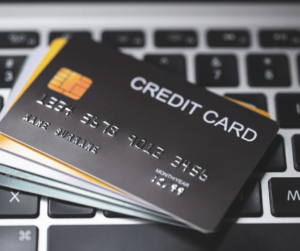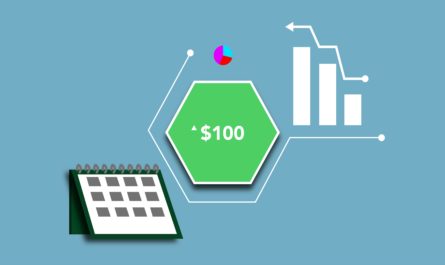Credit card debt is a common financial challenge that millions of people face. It’s easy to accumulate debt with the convenience of credit cards, but managing that debt can be overwhelming. In this article, we will explore effective strategies to help you regain control of your financial life and work towards a debt-free future.
1.2 Importance of Managing Credit Card Debt
Managing credit card debt is crucial for various reasons. Excessive debt can lead to financial stress, impact your credit score, and hinder your ability to achieve long-term financial goals. By learning to manage your credit card debt wisely, you can pave the way to financial freedom and peace of mind.
Types of Credit Card Debt
2.1 Revolving Credit Card Debt
Revolving credit card debt refers to the balance that you carry from one month to the next. Credit card companies charge interest on this balance, and if not managed properly, it can quickly accumulate.
2.2 Non-Revolving Credit Card Debt
Non-revolving credit card debt includes loans and installment payments made with your credit card. These debts have fixed repayment terms and can also accumulate if not managed effectively.
Creating a Budget
3.1 Tracking Your Expenses
One of the first steps in managing credit card debt is creating a budget. Start by tracking your monthly expenses to gain a clear understanding of where your money goes.
3.2 Setting Realistic Financial Goals
Establish achievable financial goals, such as paying off a certain amount of debt each month. These goals will keep you motivated and on track.
3.3 Prioritizing Debt Payments
Identify which credit card debts have the highest interest rates and prioritize paying them off first. This will save you money in the long run.
Strategies for Managing Credit Card Debt
4.1 Snowball Method
The snowball method involves paying off your smallest debt first while making minimum payments on the others. Once the smallest debt is paid off, you move on to the next smallest, creating a snowball effect.
4.2 Avalanche Method
The avalanche method focuses on paying off the debt with the highest interest rate first, which saves you the most money on interest over time.
4.3 Debt Consolidation
Debt consolidation involves combining multiple high-interest debts into a single, lower-interest loan, making it easier to manage your payments.
4.4 Credit Counseling
Seeking professional credit counseling can provide you with expert advice on managing your debt and creating a debt repayment plan.
Tips for Reducing Credit Card Debt
5.1 Cutting Unnecessary Expenses
Identify areas where you can cut back on spending to allocate more money towards debt repayment.
5.2 Increasing Your Income
Consider additional sources of income, such as a part-time job or freelancing, to accelerate your debt payments.
5.3 Negotiating with Creditors
Contact your creditors to negotiate lower interest rates or work out a repayment plan that suits your financial situation.
Building Good Financial Habits
6.1 Emergency Savings Fund
Create an emergency savings fund to cover unexpected expenses and prevent the need to rely on credit cards.
6.2 Responsible Credit Card Usage
After paying off your credit card debt, use your cards responsibly, paying the balance in full each month to avoid accumulating more debt.
6.3 Seeking Professional Help
If you’re struggling to manage your debt, consider consulting a financial advisor or counselor for personalized guidance.

Monitoring Your Progress
7.1 Regularly Reviewing Your Financial Situation
Frequently assess your financial progress and make adjustments to your plan as needed.
7.2 Celebrating Small Victories
Don’t forget to celebrate your achievements, no matter how small. It will keep you motivated on your journey to financial freedom.
The Psychological Aspect of Debt
8.1 Coping with Financial Stress
Dealing with debt can be emotionally challenging. Seek support from friends or family and consider stress-reduction techniques.
8.2 Staying Motivated
Keep your financial goals in mind and stay motivated throughout your debt repayment journey.
The Road to Financial Freedom
9.1 Achieving a Debt-Free Life
With dedication and discipline, you can achieve a debt-free life and enjoy the financial freedom you’ve always desired.
9.2 Planning for Your Financial Future
Once you’ve paid off your credit card debt, shift your focus to long-term financial planning, such as saving for retirement and investing.
Conclusion
In conclusion, managing credit card debt is a crucial step towards achieving financial freedom. By following the strategies and tips outlined in this article, you can take control of your finances and work towards a debt-free future. Remember, it’s never too late to start managing your credit card debt effectively.
FAQs (Frequently Asked Questions)
FAQ 1: How can I stop accumulating more credit card debt?
To prevent further credit card debt, cut unnecessary expenses, create a budget, and use your credit cards responsibly by paying the balance in full each month.
FAQ 2: Is debt consolidation a good option for managing credit card debt?
Debt consolidation can be a good option if you can secure a lower-interest loan. However, it’s essential to research and choose a reputable provider.
FAQ 3: What should I do if I can’t make my credit card payments?
If you’re struggling to make credit card payments, contact your creditors to discuss your situation and explore possible solutions.
FAQ 4: How long does it take to become debt-free?
The time it takes to become debt-free varies depending on the amount of debt and your repayment strategy. With discipline, you can expedite the process.
FAQ 5: Should I seek professional help for managing my credit card debt?
If you find it challenging to manage your credit card debt on your own, consider seeking advice from a financial advisor or credit counselor. They can provide tailored solutions to your unique situation.


